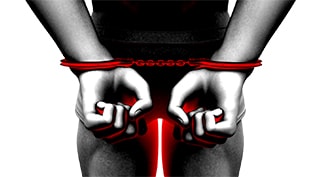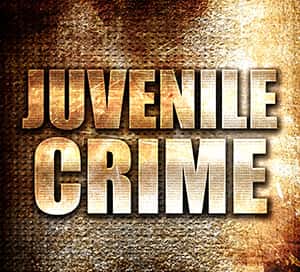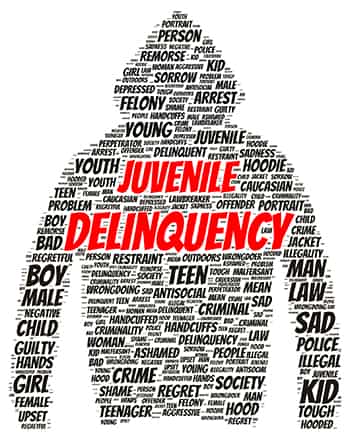Juvenile Laws in the UAE
 Juvenile delinquency is a social concern that governments globally strive to respond to with both sensitivity and equity, balancing requirements for justice, rehabilitation, and child welfare. In the UAE, the juvenile delinquents' legal framework reflects an advanced approach focusing on reforming and rehabilitating minors while imposing strict provisions in cases of more serious offenses. This article discusses the UAE laws on juvenile delinquency, including definitions, prosecution conditions, rehabilitation measures, and the impact of recent legislative updates.
Juvenile delinquency is a social concern that governments globally strive to respond to with both sensitivity and equity, balancing requirements for justice, rehabilitation, and child welfare. In the UAE, the juvenile delinquents' legal framework reflects an advanced approach focusing on reforming and rehabilitating minors while imposing strict provisions in cases of more serious offenses. This article discusses the UAE laws on juvenile delinquency, including definitions, prosecution conditions, rehabilitation measures, and the impact of recent legislative updates.
Understanding Juvenile Delinquency in the UAE
A juvenile delinquent in the UAE is defined as any individual under the age of 18 who is found committing a crime or engaged in unlawful behavior, such as loitering. Age determination is very important in such cases and is done by using official documents like birth certificates or Emirates IDs. If such documents are not available, the court appoints specialized physicians who conduct physical development assessments. The assessment may be done through techniques like sonography to assess bone growth, visual inspection of teeth, MRI scans, or any other medically approved methods.
The UAE's juvenile justice system is based on the principles of restorative justice, which treats young offenders with compassion while holding them accountable for unlawful actions.
Criminal Prosecution Conditions for Juveniles
The UAE's juvenile justice system is governed by Federal Law No. 9 of 1976 regarding juveniles, with amendments and additional laws enacted in recent years. The law divides minors into three primary age groups, each with different prosecution conditions:
- Children Under Seven Years of Age
There is no criminal trial of minors under the age of seven in the UAE. Though no penalty is incurred by this category, the courts have the discretion to order the child to receive reform treatment if appropriate. This may include counseling, rehabilitation programs, or transferring the custody of the child to a respectable adult for further care and guidance.
- Children Between Seven and Sixteen Years of Age
At the discretion of the judge, children between the ages of seven and sixteen years face criminal trial. The judge would consider several things such as;
- Cognitive Development: The perception and understanding the child had regarding their actions.
- Environment: Socio-economic and family setting that the minor grew up in.
- Motivations: The situation or pressures that forced the minor into delinquent behavior.
For this age group, the courts concentrate on rehabilitation instead of punishment. The courts can order some forms of measures, such as supervised probation, community service, or placement in a juvenile educational center.
- Adolescents Aged Sixteen to Eighteen
Sixteen- to eighteen-year-old offenders are brought before court as adults and receive treatment unlike that for adults. If the crime committed is severe, detention can be included as part of the judgment given by a judge. Even here, however, it is a matter of rehabilitation, not imprisonment as punishment.
Rehabilitation and Educational Institutions
Rehabilitation for juvenile offenders is a cornerstone of the legal system in the UAE. When minors are sanctioned to detention, they are sent to specialized educational centers for juveniles instead of ordinary prisons. The centers offer a structured environment with access to:
- Social Care
Psychologists and social workers help address behavioral issues and provide emotional support.
- Education
Academic and vocational training programs equip juveniles with skills to reintegrate into society.
- Cultural Development
This includes recreational and cultural activities that nurture creativity and individuality.
 Institutional purposes
Institutional purposes
These kinds of institutions intend to decrease the recidivism rate by considering the personal growth of juveniles and preparing them in every possible manner to lead productive lives after the release.
Procedures in Trial for Juvenile
Juvenile trials in UAE are carried out very sensitively without compromising the private space and mental security of the juvenile. Some major procedural safeguards:
- Courtrooms are not open to public
Juvenile trials are conducted in camera, away from the prying eyes of the public. This ensures that the whole process is confidential, thus not giving a lot of stigma attached to criminal charges.
- Probationary Periods
Judges can, at their discretion, stay judgments for one to three years. During this time, the juvenile is put under supervised probation. In case the juvenile successfully completes the probation, the case is considered nullified. Failure to comply with probation conditions may lead to a full trial and sentencing.
- Ban on Harsh Punishments
The UAE law categorically prohibits harsh punishments for juveniles. Key provisions include:
- Capital Punishment
Juveniles are not subjected to capital punishment by the laws of the UAE. If an offense committed deserves a death penalty upon an adult, it is substituted by detention for ten years at the maximum for a juvenile.
- Decreased Punishment
Detention punishments for an offense are restricted for juveniles to half of the maximum sentence allocated for the offenders who are adults. The statute, thus reflects the aim of the system toward rehabilitation.
Latest Statutory Developments
The UAE has consistently updated its legal framework to conform to international best practices in child rights and juvenile justice. Some of the key updates include:
- Strengthened Rehabilitation Programs
Recent amendments to juvenile laws focus on the use of technology in rehabilitation. Virtual learning platforms, online counseling, and AI-based assessments are being tested to improve the functioning of educational centers.
- Restorative Justice Programs
Restorative justice programs are implemented to provide victims and offenders with the opportunity to have mediated discussions. Such programs seek to hold juveniles accountable and emotionally close the wounds of victims.
- Enhanced Juvenile Privacy Protection
Laws have been amended to penalize more harshly those that disclose the identity or case information of a juvenile offender. This would ensure that the minor is protected from societal bias.
- Enhanced Role of Community Institutions
This role is increasingly taken up by community organizations and NGOs, which engage in rehabilitation through mentorship programs, vocational training, and post-release support .
Causes of Juvenile Delinquency in the UAE
The UAE has remarkably low crime rates compared to international levels; however, with the pace of change in society and continuous urbanization, it faces challenges to completely tackle the problem of juvenile delinquency. Some prevalent causes include:
- Family Dynamics
Broken families or absent parents can contribute to problem behavior among the youth.
- Peer Pressure
It is especially more prone to harmful influences coming through social circles among adolescents.
- Economic Inequalities
Poverty may force some juveniles towards pickpocketing or other crimes.
- Digital Exposure
Uncontrolled social media and internet access expose the youth to harmful information or become prone to the commission of cybercrimes.
Analysis against GCC Countries
The UAE's juvenile laws are similar to those of other GCC countries, but there is a difference in the implementation of the laws:
- Saudi Arabia
Saudi Arabia is known for its strict Sharia-based principles in the juvenile justice system. Rehabilitation is given priority, but the country has stricter laws regarding certain crimes, such as drug-related offenses.
- Qatar
Qatar has established digital monitoring for juveniles placed on probation that can update the judicial authorities immediately on their conduct and activities.
- Bahrain
Community-based corrections, with a restorative justice orientation and family counseling programs, have been emphasized by Bahrain.
The UAE is prominent for having rehabilitation infrastructure that is quite complete and forward-looking policies, especially when it comes to the welfare of children.
Role of International Conventions
The UAE is a signatory to various international conventions on child rights, such as the United Nations Convention on the Rights of the Child (UNCRC). Such commitments influence the country's juvenile justice policies, which align with international standards. The UAE has also collaborated with organizations such as UNICEF in developing child-friendly judicial systems.
Challenges and the Way Forward
Despite its robust framework, the UAE faces challenges in juvenile justice:
- Resource Constraints: Development of rehabilitation centers and training specific staff members entails a lot of investment.
- Social Stigma: Youngsters are largely shunned by society, thus preventing their successful rehabilitation.
- Technological Abuse: Cybercrime among young people is on the increase and thus laws need to be amended.
To overcome these problems, the UAE can:
- Publicize juvenile rights among the people.
- Encourage associations between government, NGOs, and educational institutions.
- Spend more on research regarding changing trends among youngsters.
 Conclusion
Conclusion
The approach of the UAE towards juvenile delinquency is balanced between justice and compassion. Through rehabilitation, education, and community integration, the country ensures that minors are given opportunities to reform and contribute positively to society. As the legal landscape continues to evolve, the UAE's commitment to protecting its youth remains steadfast, serving as a model for other nations grappling with similar challenges.
 English
English
 عربي
عربي Русский
Русский 官话
官话 português
português
 Türk
Türk 







